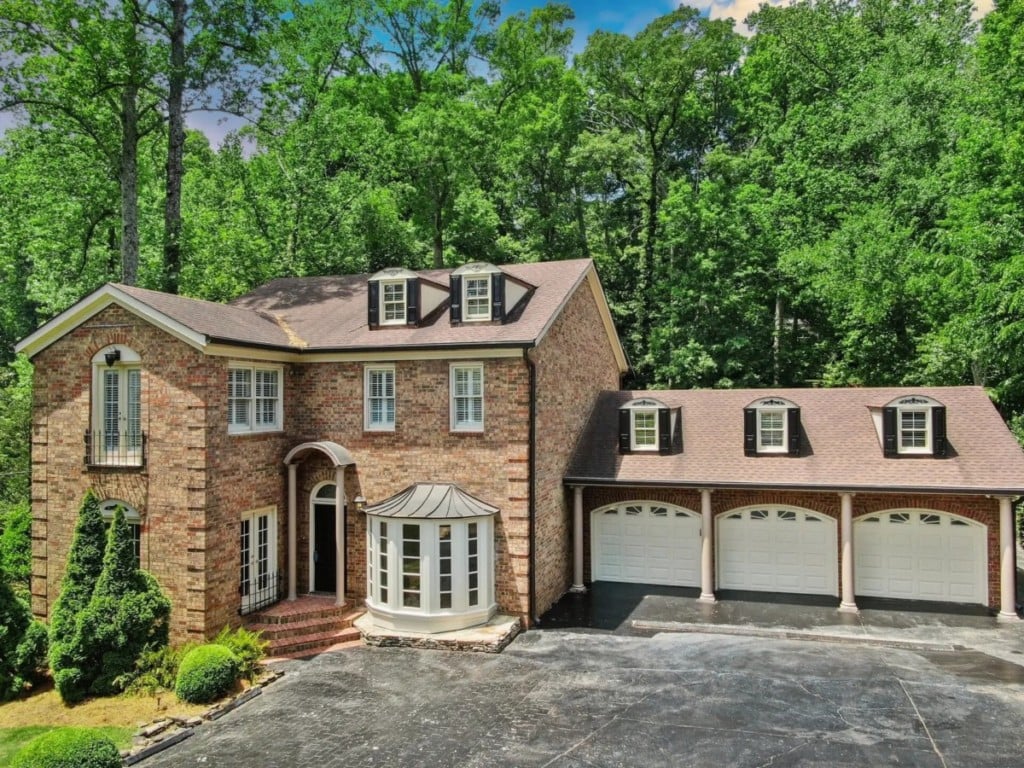How Much Are Closing Costs in Georgia 2024?

Congratulations! You’re only a few more steps away from closing on your new home. But before you can officially get the keys, one of the last steps is to pay closing costs.
Closing costs are the taxes and fees associated with the purchase and sale of a home, such as title insurance and lender fees. Let’s break down how much closing costs are in Georgia, who pays for them, and what costs you can expect to pay as a buyer and as a seller.
How much are closing costs in Georgia?
In addition to the down payment, homebuyers will also need to pay closing costs before securing the keys to their new home. Closing costs in Georgia typically range from 2%-5% of the home’s purchase price. However, keep in mind that closing cost amounts vary depending on many factors – such as the buyer’s loan program or negotiations made with the seller.
Let’s say you’re buying a home in Atlanta, where the median home sale price is $429,990. Based on this, you could expect closing costs to be between $8,600 and $21,500. Whereas if you’re buying a home in Marietta, which has a median sale price of $450,000, closing costs could range from $9,000 to $22,500.
Who pays closing costs in Georgia?
Usually both the buyer and the seller pay closing costs. But the buyer and seller will pay for different closing costs and likely have different total closing cost amounts. Keep in mind that it’s common for the buyer to pay closing costs out of pocket, while the seller’s closing costs are deducted from the home sale proceeds.
Buyer closing costs in Georgia
Closing costs in Georgia for homebuyers tend to range between 2%-5%. If you’ve paid earnest money, which is typically 1%-3% of the home’s price, this amount will be subtracted from your closing costs. Here are a few common closing costs that buyers typically cover:
Appraisal fee: Your mortgage lender will require a home appraisal to ensure the home value is equal to or more than the loan amount. Home appraisals typically cost between $300 and $500, depending on location. If you pay at the time of service, it will not be included in your closing costs.
Inspection fee Although not required, a home inspection is highly recommended. Home inspections generally range from $300 to $500 in cost and are usually paid at the time of service. However, if not, it will need to be paid at closing.
Loan origination fee: Your lender may charge a fee for creating your loan. It’s important to inquire about what this cost covers and whether it’s negotiable to potentially avoid high costs.
Loan processing fee: In addition to the origination fee, your lender may also charge a fee for processing your loan. This typically covers underwriting and related services. It’s recommended to discuss this fee with your lender to understand what this fee covers and if it can be waived.
Loan discount points: If you buy discount points to lower your interest rate, you’ll pay a one-time fee at closing. These points can lower your rate by 0.25% to 0.5%, but consider your long-term homeownership plans before paying for a reduced rate.
Private mortgage insurance (PMI): Required for down payments under 20%, PMI might involve an upfront fee at closing, depending on the loan type. It’s usually part of your monthly payment, but some loans offer the option to pay it as a one-time fee.
Title insurance: Title insurance is a one-time fee paid as part of closing costs. Buyers typically cover both lender and owner title insurance policies.
Homeowners insurance: Your annual homeowners insurance premium may be included in your closing costs in Georgia.
Homeowners Association dues: If your property is part of a homeowners association, you’ll likely pay one month’s dues upfront at closing. These fees vary and contribute to maintenance and operational costs.
Property taxes: As part of closing costs in Georgia, you may be required to prepay a portion of your property taxes at closing.
Seller closing costs in Georgia
The closing costs covered by sellers in Georgia can vary, but below are some of the common fees and costs that a seller pays for:
Real estate agent commission fees: These fees can be a significant cost for sellers. Commission fees may vary and are subject to negotiation. Sellers should discuss their options with their agent.
Homeowners Association fees: If the property is part of a homeowners association, sellers are usually responsible for settling any outstanding HOA fees or assessments up to the date of closing. Additionally, sellers may need to provide certain HOA documents to the buyer as part of the sale.
Property taxes: Sellers are responsible for any property taxes that have accrued but not yet been paid up to the closing date. These unpaid property taxes are typically prorated for the months that you owned the property.
Title insurance: As part of closing costs for sellers in Georgia, sellers may pay for owner’s title insurance. Typically, this cost is based on the home’s sale price.
Transfer taxes: In Georgia, there is a state levied tax on the transfer of ownership of real estate. Sellers can expect to pay a one-time transfer tax as part of closing costs. There may also be additional taxes levied by local governments, such as counties and cities.
Median home sale price data from the Redfin Data Center during July 2024.
The post How Much Are Closing Costs in Georgia 2024? appeared first on Redfin | Real Estate Tips for Home Buying, Selling & More.




